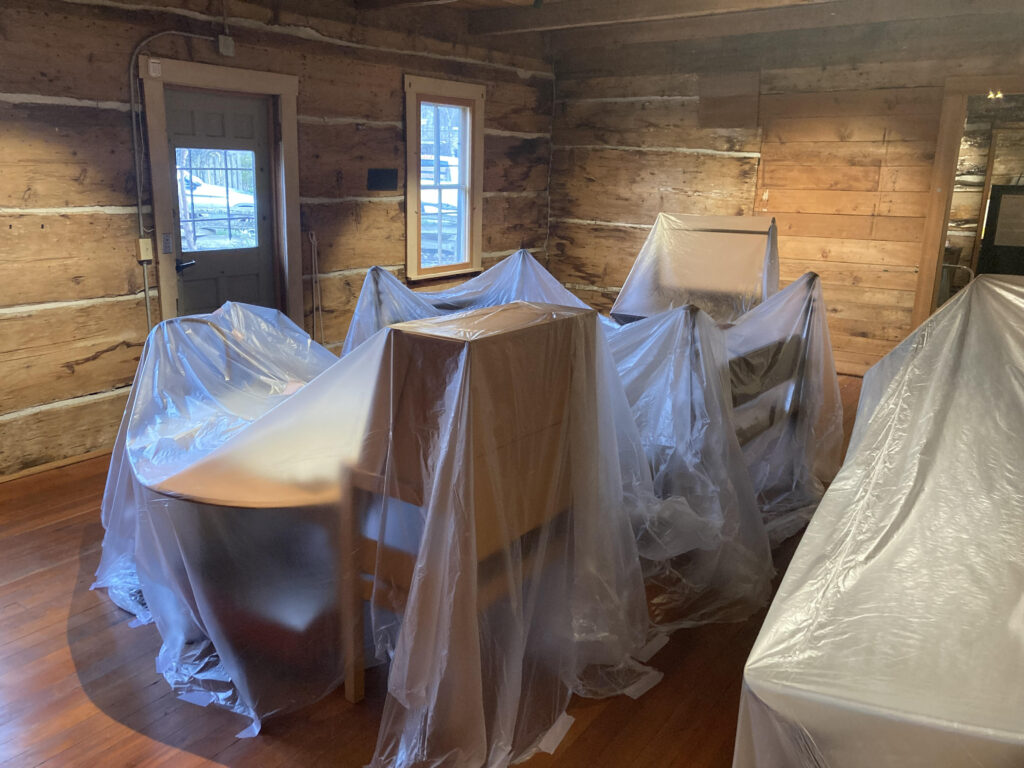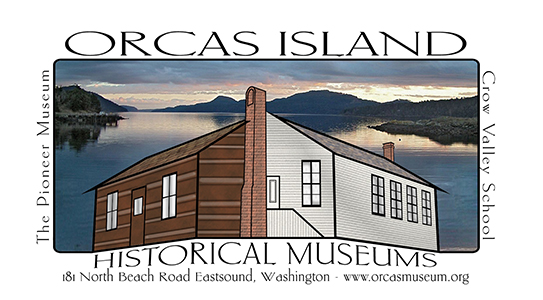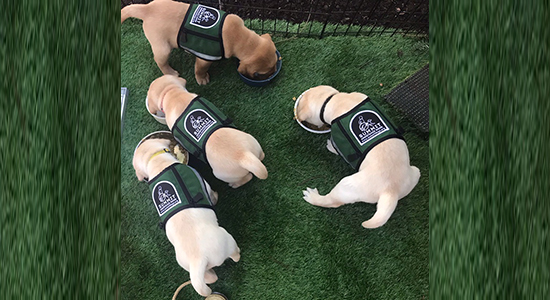||| FROM MICHELLE HASSEBROCK for ORCAS ISLAND HISTORICAL SOCIETY |||
Thanks to the generosity of an anonymous donor, the Orcas Island Historical Society has begun exterior preservation of the historic log cabins that make up the Eastsound museum. The museum is built around six original cabins that range between 120-150 years old, and are some of the last surviving examples of log homesteader structures on Orcas.
We will be working with Madrona Log Homes of Marysville, WA to restore and preserve the exterior walls of our cabins, some of which have been weathered by the Orcas elements for over 150 years! Madrona Log Homes has restored hundreds of log buildings throughout the region, including a previous project on Orcas, and we are excited to welcome their expertise and care to the museum.

The project is expected to take 5-6 weeks total, weather dependent. Interior exhibits will be moved and protected throughout the duration of the project, and we will take advantage of this opportunity for a thorough deep clean. For these reasons, the exact re-open date for the Eastsound museum will be announced in March.
While it may appear that new construction is being done on our heritage cabins, we assure you that this project is only for the necessary purpose of preserving our historic buildings.
A classic symbol of Americana, the origin of log building styles is actually largely Scandinavian. As more Europeans immigrated to the United States and the Homestead Act fueled western expansion, log building techniques spread across the continent. The forests of
Orcas were bountiful, and since log cabins required only logs and an ax at minimum, settlers had everything they needed to establish their homesteads and start proving up the land.
The majority of the museum is made up of six of these homesteader cabins that were each moved from their original locations and rebuilt piece by piece in the heart of Eastsound. The cabins range in age from approximately 120-150 years old, and while they have endured spectacularly over the years, there has been a growing need to ensure their continued preservation.
Log buildings, because of their distinctive material, physical structure, and sometimes their architectural design, can develop their own unique deterioration problems. The Eastsound museum’s log cabins contain examples of almost every type of deterioration problem known to affect such buildings. The foundation is often the first site of problems, particularly when the log structure has been built upon a direct-earth contact log sill. Being the closest element of the building to the ground and therefore vulnerable to moisture-holding vegetation and wood-destroying insects, the foundation sill has often rotted away by the time the building has served its first generation of occupants.
The cabins are both the buildings that house our collections, as well as themselves being accessioned artifacts in our collections. Preservation ensures the endurance of our facility, conservation of the items housed within, and will protect the iconic facade of our museum. The museum’s log cabins are a tangible link to Orcas’ past, specifically to the homestead era and the beginnings of non-indigenous settlement of the island. Not only are our cabins objects of history and cultural heritage, they house thousands of artifacts, documents, and photographs of Orcas Island. This preservation project will then serve to protect not only our beloved building, but the
historical objects contained within that have been entrusted to our care. The unique architecture of our museum is not just a cornerstone of our organization, but it’s also a classic symbol of Orcas Island and our community, and it is our responsibility to protect this monument for generations to come.
Please don’t hesitate to contact us with any questions or concerns at info@orcasmuseums.org, or call us at (360)376-4849.
**If you are reading theOrcasonian for free, thank your fellow islanders. If you would like to support theOrcasonian CLICK HERE to set your modestly-priced, voluntary subscription. Otherwise, no worries; we’re happy to share with you.**









It would be nice to also think about finishing up the original project from 20 years ago. I believe the plans are still operational. Just a thought.
The anonymous funder of this work has the full measure of my gratitude for enabling this work to be done…thank you so much !!